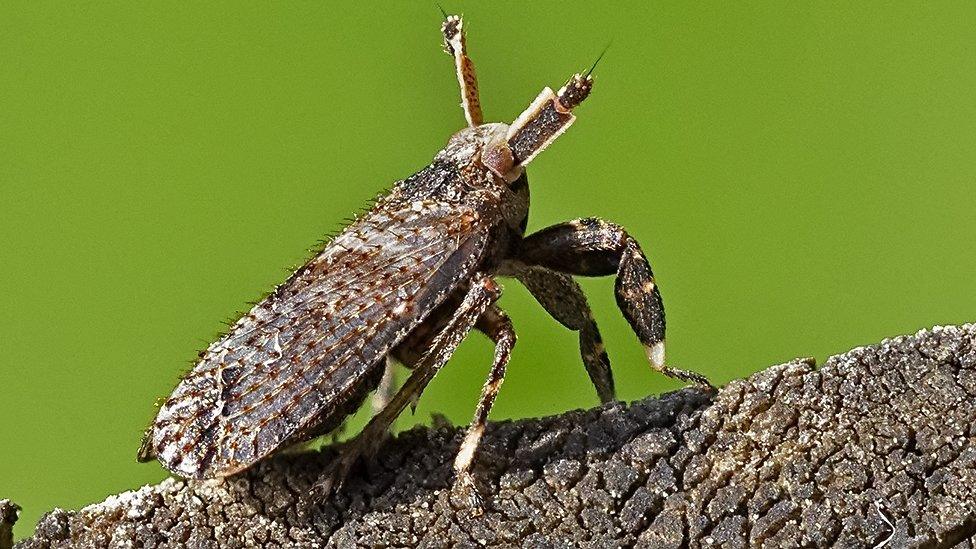Testing by Cambridge lab confirms new tulip found in Kyrgyzstan
- Published
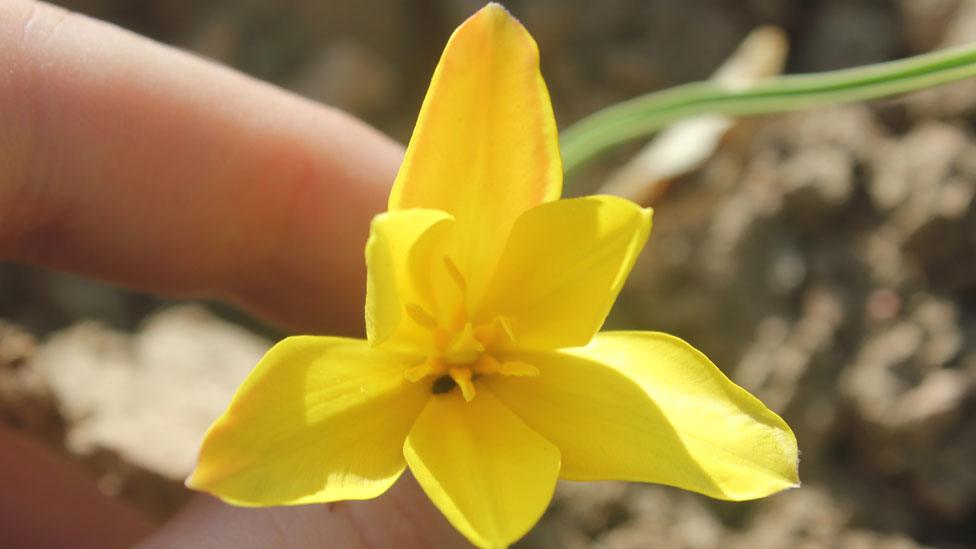
Tulipa toktogulica looked similar to other species growing in the region, until it was dug up
Plant hunters have discovered a new and unusual species of tulip during an expedition to Kyrgyzstan.
DNA testing at a Cambridge University, external laboratory has established it was "something completely different".
Tulipa toktogulica was found by scientists from the university's botanic garden, Fauna and Flora International (FFI) and local teams.
Cambridge postgraduate student Brett Wilson was on the expedition and said the discovery was "super exciting".
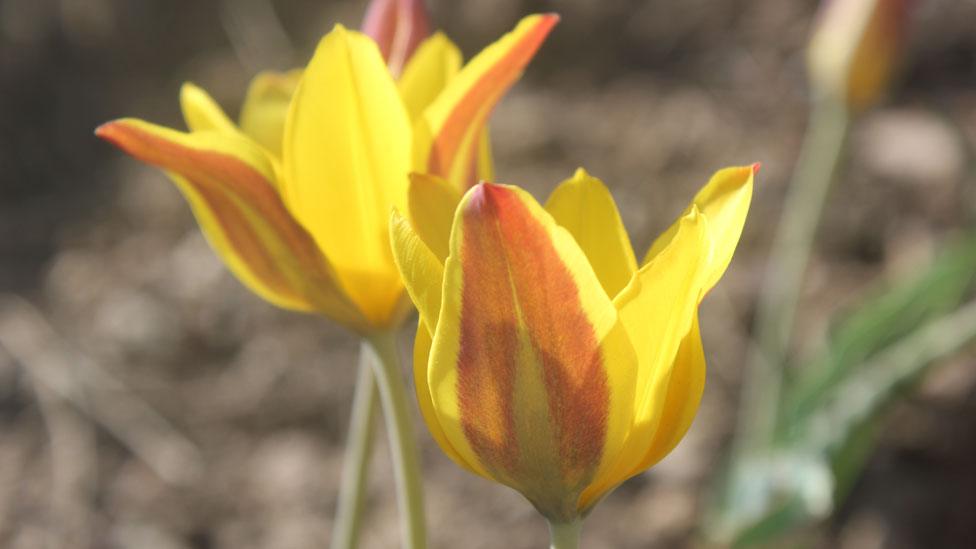
The plant ranges in size from 10cm to 19cm tall (3.9in to 7.4in)

(left to right) Brett Wilson with David Gill from FFI, Kew consultant Maarten Christenhusz and Ormon Sultangaziev, from FFI Kyrgyzstan
Mr Wilson, 28, a botanist and conservationist, said initially the wild tulip, which has a bright yellow flower with red streaked outer petals, "looked similar to other species".
Once they dug it up, "Georgy Lazkov, from the National Academy of Sciences of the Kyrgyz Republic, and I thought we might be looking at something out of the ordinary".
Mr Wilson, who has been working on tulip conservation for five years, said: "It turned out to be something completely different - we had found what was likely to be a new species, but we wanted to be sure before we set to work formally describing it."
DNA testing at Cambridge University's Department of Plant Science provided the confirmation they needed.
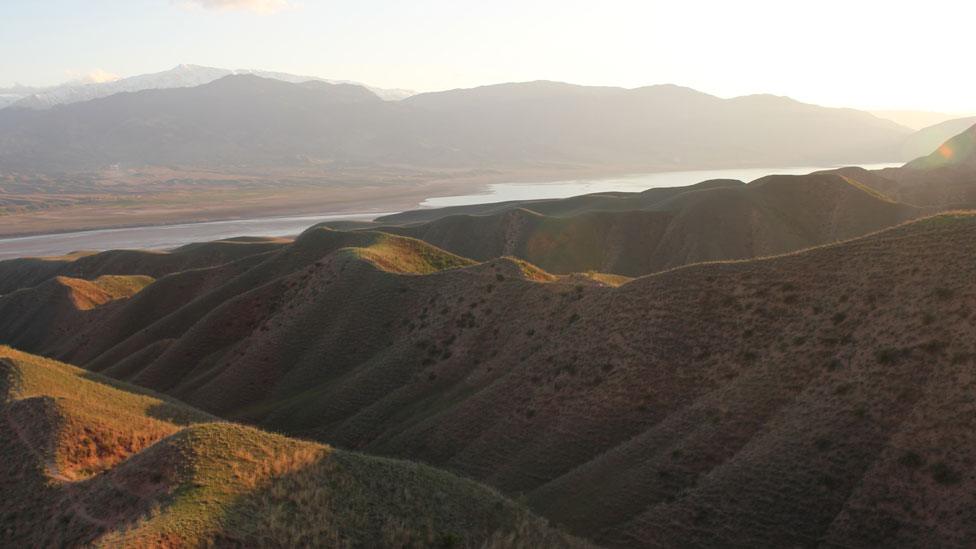
It was discovered in a mountainous region of Kyrgyzstan as part of a wider project to understand how to conserve wild tulips in their natural habitat
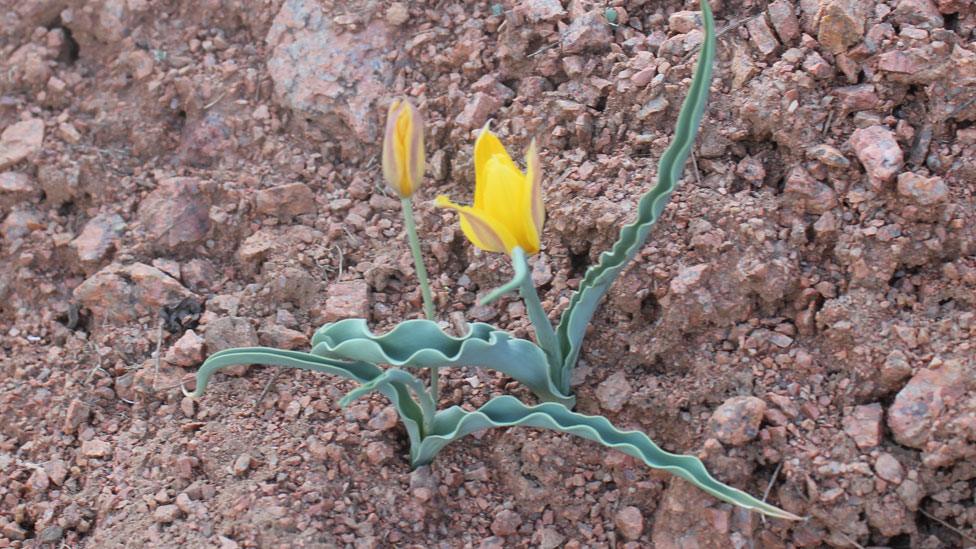
Mr Wilson said the discovery of Tulipa toktogulica "was super exiting for me personally, but it involved a lot of work for a lot people to get the whole thing together"
The plant, which ranges in height from 10cm to 19cm (3.9in to 7.4in), was discovered in the mountainous Toktogul region of the former Soviet Union republic in central Asia, and is named after it.
The group was led by Cambridge University Botanic Garden's curator Sam Brockington, David Gill, from Fauna and Flora International (FFI) and Central Asian tulip experts, including from the National Academy of Sciences of the Kyrgyz Republic.
It was part of a project seeking to understand how tulips evolved and how best to conserve them in their natural habitats.
Tulipa toktogulica has been given conservation status and attempts will now be made to propagate it from seed at the Botanic Garden, which could take several years.

Find BBC News: East of England on Facebook, external, Instagram, external and Twitter, external. If you have a story suggestion email eastofenglandnews@bbc.co.uk, external
- Published28 January 2022
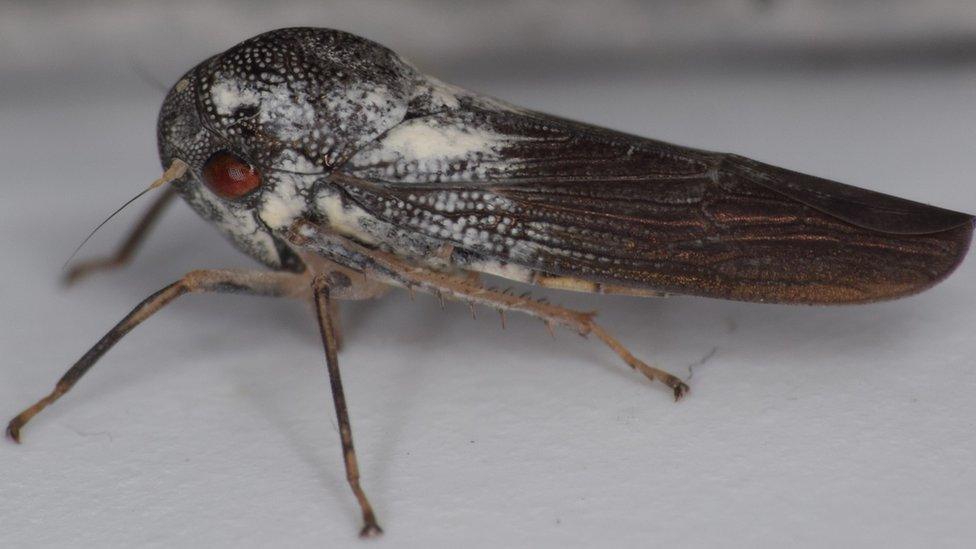
- Published10 January 2022
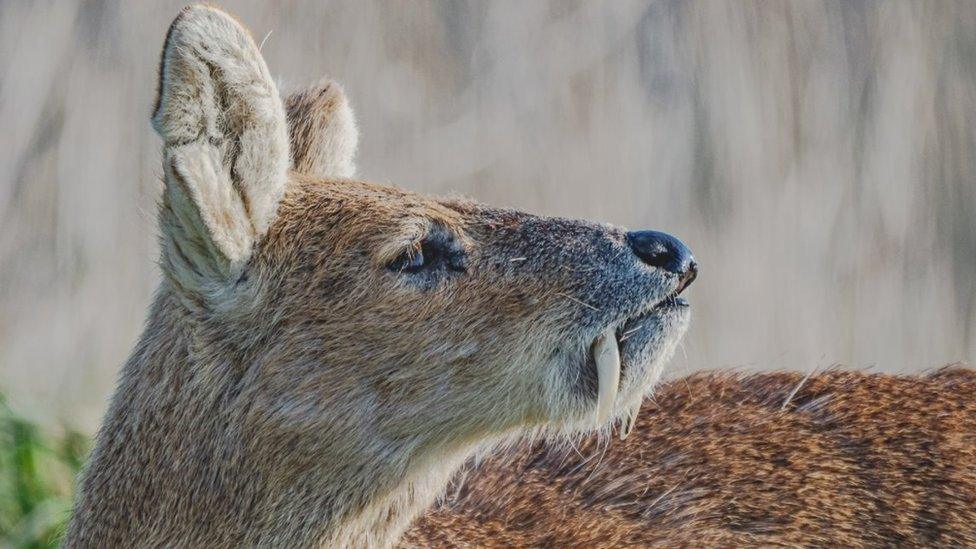
- Published10 July 2021

- Published31 May 2020
